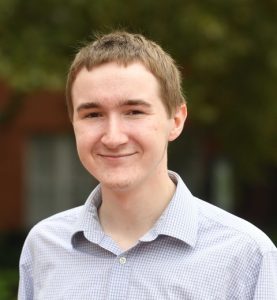
I am a PhD Candidate at Columbia university, and my research interests are primarily in information economics, with an emphasis on social learning, and the economics of networks. I am specifically interested in polarization, and the spread of political opinions and information. I am on the Job Market this 2023-24 Academic Year.
Modern society is increasingly polarized, even on purely factual questions, despite greater access to information than ever. In a model of sequential social learning, I study the impact of motivated reasoning on information aggregation. This is a belief formation process in which agents trade-off accuracy against ideological convenience. I find that even Bayesian agents only learn in very highly connected networks, where agents have arbitrarily large neighborhoods asymptotically. This is driven by the fact that motivated agents sometimes reject information that can be inferred from their neighbors' actions when it refutes their desired beliefs. Observing any finite neighborhood, there is always some probability that all of an agent's neighbors will have disregarded information thus. Moreover, I establish that consensus, where all agents eventually choose the same action, is only possible with relatively uninformative private signals and low levels of motivated reasoning.
Online Partisanship & Learning through Anonymous Speech (Working Paper)
The intense partisanship of social media is often remarked upon in modern political discourse, here I show that exaggerated partisanship is to be expected when non-partisan agents dislike to be caught making incorrect statements publicly. This is exacerbated by more limited information, and more extreme punishment for errors. I suggest the introduction of partial anonymous commenting as a solution.
Social Learning with Rational Inattention (Work in Progress)
Observing the views of others takes time and effort, yet in social learning it is typically assumed that we observe all those to whom we are connected for free. I investigate a model in which agents are rationally inattentive: they pay a certain cognitive cost to acquire private information, but must also pay to observe those to whom they are connected. In social networks where the cost of observation is decreasing in the strength of a given connection, I investigate the network and information conditions required for complete learning. I also analyse whether increasing or decreasing the connectivity of the network increases or decreases asymptotic accuracy, and under what circumstances.
Network Formation, Belief Consonance & Latte-drinking Liberals with Evan Sadler (Work in Progress)
That ideological beliefs and lifestyle choices go hand in hand is well established empirically, but lacking theoretical explanation. Considering agents with a preference for belief and lifestyle consonance, we investigate under what circumstances ideological polarization produces a belief-lifestyle affinity in stochastically stable networks.
I have also acted as a reviewer for the Journal of Economic Theory, and worked as a research assistant for Prof. Evan Sadler (Fall 2022 & Spring 2023), Prof. Andrew Kosenko (Fall 2021), and Prof. Navin Kartik (Spring 2021).
Columbia University
Spring 2022 – ECON GU4840 Behavioral Economics (Undergraduate), Columbia University, TF for Professor Mark Dean
Fall 2021 – ECON GU4260 Market Design (Undergraduate), Columbia University, TF for Professor Guillaume Haeringer
Spring 2021 – ECON GU4260 Market Design (Undergraduate), Columbia University, TF for Professor Guillaume Haeringer
Fall 2020 – ECON UN1105 Principles of Economics (Undergraduate), Columbia University, TF for Professor Sunil Gulati
Fall 2020 – ECON GR6211 Microeconomic Analysis I (Graduate), Columbia University, Grader for Professors Qingmin Liu and Pierre-André Chiappori
Summer 2020 – ECON S4415 Game Theory (Undergraduate), Columbia University, TF for David Rosenkranz
Summer 2020 – ECON S3025 Financial Economics (Undergraduate), Columbia University, TF for Professor A. Vivette Ancona
Spring 2020 – ECON UN3412 Introduction to Econometrics (Undergraduate), Columbia University, TF for Professor Thomas Piskula
Fall 2019 – ECON UN3412 Introduction to Econometrics (Undergraduate), Columbia University, TF for Professor Jushan Bai

